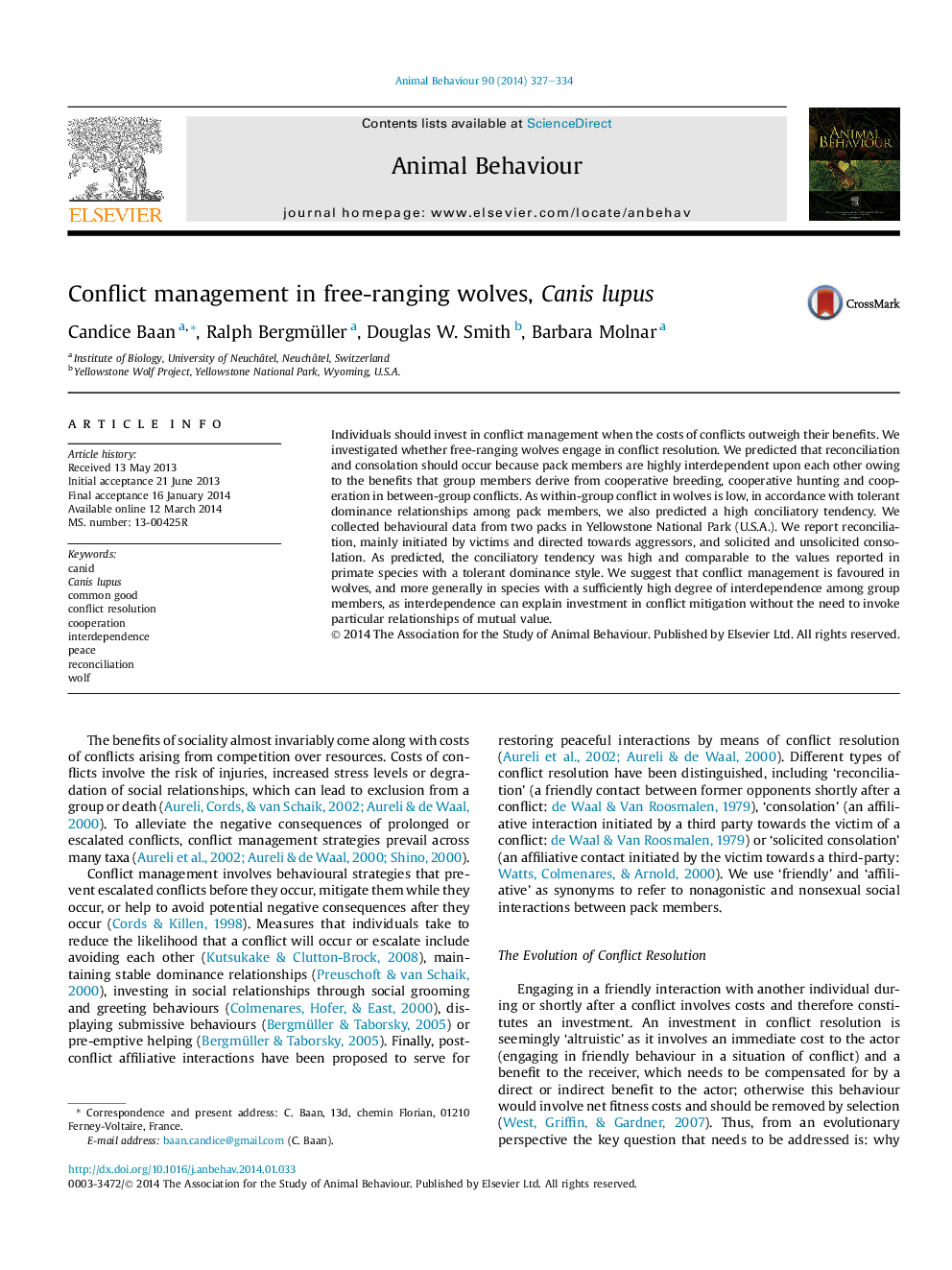| Article ID | Journal | Published Year | Pages | File Type |
|---|---|---|---|---|
| 2416404 | Animal Behaviour | 2014 | 8 Pages |
•Our study shows that free-ranging wolves engage in conflict management.•Friendly behaviours occurred shortly after a conflict.•Mainly victims initiated and directed reconciliation towards aggressors.•Conflict resolution is an important peace-keeping signal in dominance relationships.•Conflict management is a key component of the social life of wolves.
Individuals should invest in conflict management when the costs of conflicts outweigh their benefits. We investigated whether free-ranging wolves engage in conflict resolution. We predicted that reconciliation and consolation should occur because pack members are highly interdependent upon each other owing to the benefits that group members derive from cooperative breeding, cooperative hunting and cooperation in between-group conflicts. As within-group conflict in wolves is low, in accordance with tolerant dominance relationships among pack members, we also predicted a high conciliatory tendency. We collected behavioural data from two packs in Yellowstone National Park (U.S.A.). We report reconciliation, mainly initiated by victims and directed towards aggressors, and solicited and unsolicited consolation. As predicted, the conciliatory tendency was high and comparable to the values reported in primate species with a tolerant dominance style. We suggest that conflict management is favoured in wolves, and more generally in species with a sufficiently high degree of interdependence among group members, as interdependence can explain investment in conflict mitigation without the need to invoke particular relationships of mutual value.
